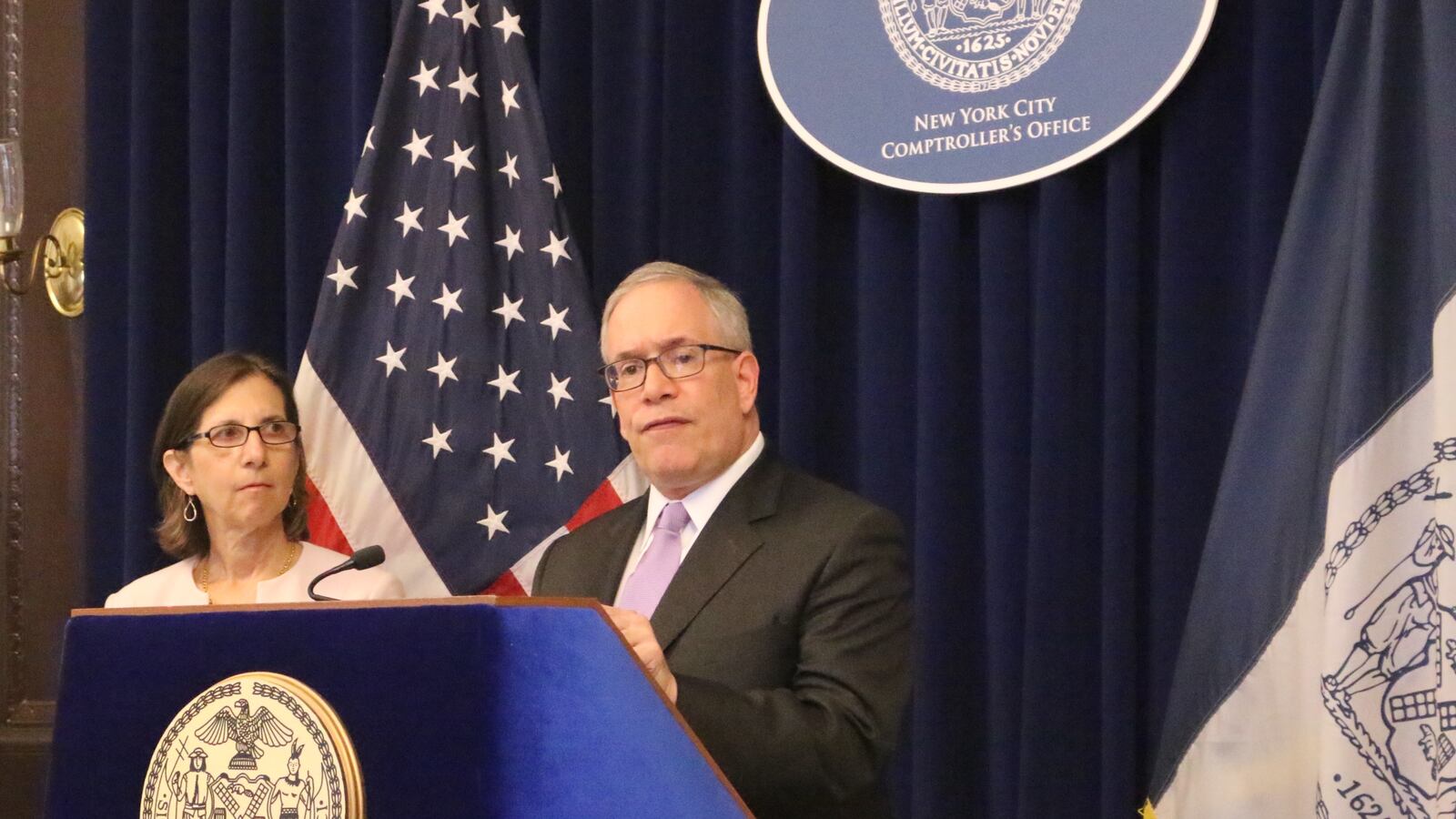The city’s top financial watchdog didn’t wait even a week before pressing Chancellor Richard Carranza on whether the “Renewal” school turnaround program is living up to its nearly $600 million price tag.
“While some Renewal schools have shown improvements,” Comptroller Scott Stringer wrote in a letter to Chancellor Richard Carranza, “inconsistent progress across all Renewal schools suggests the need for a more thorough review of the program’s components and their overall impact.”
The letter, sent just three days after Carranza officially took office, asks for a detailed accounting of how Renewal schools spent money on core elements of the program, including teacher training and extending the school day for an hour — as well as any evidence that those efforts are paying off or being monitored. Two independent evaluations by outside researchers suggest the program has produced only mixed results.
Stringer’s letter appears to be motivated at least in part by a recent round of hotly contested school closures. Since the program’s launch in 2014, 16 of 94 original Renewal schools have been merged or closed. (Another 21 schools are slowly easing out of the program after city officials said they made enough progress.)
“With the decision to now close schools that have not made sufficient progress,” Stringer wrote, “I question whether there have been adequate direction and accountability measures in place to ensure that all school received allocations with sufficient time to show progress, and were directing new resources to high impact programs and interventions.”
Stringer’s letter came just weeks before Carranza began raising his own questions about the Renewal program, which gives long-struggling schools extra academic support and social services. In an interview with Chalkbeat, the new schools chief said the Renewal program did not appear to have a single clear “theory of action.”
The comptroller’s probe also comes at a precarious moment for the program: It is without a permanent leader and it’s also unclear whether the city will phase out or reconfigure it. (Carranza told Chalkbeat he is committed to running a turnaround program of some kind.)
Stringer also touched on a number of other aspects of the program that have drawn criticism from school communities, including how the city identifies which schools should be closed and how the education department helps families find new schools.
According to the comptroller’s letter, multiple schools that met the exact same number of city benchmarks received different decisions about whether they should be closed.
While Stringer acknowledged that the city conducts a holistic review in making closure decisions, “the lack of transparency about these additional factors and how school closure decisions are made is breeding needless distrust in communities.”
An education department spokeswoman, Toya Holness, said the department is “reviewing the comptroller’s letter and will provide a formal response.”

